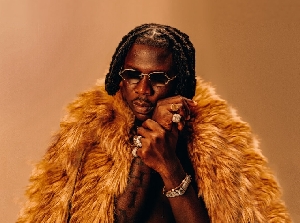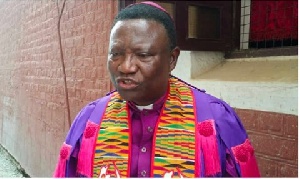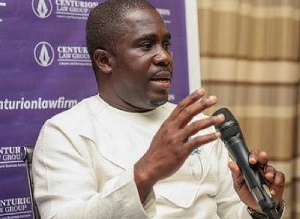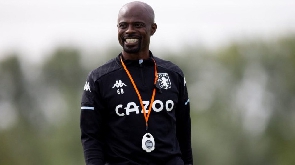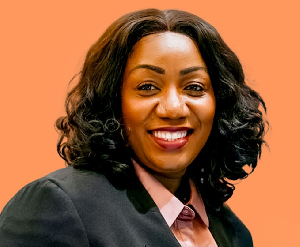By Kwame Okoampa-Ahoofe, Jr., Ph.D.
I don’t know what the immortalized Rev.-Dr. Martin Luther King, Jr., would have said about it, but as a Liberation Theologian, Dr. King, as he was and is affectionately called, was always on the frontlines where the oppression and wanton exploitation of ordinary workers – irrespective of faith, race and culture – were concerned.
In our own country’s history, I cannot point to any prominent mainline Ghanaian clergyman or woman who has joined with the masses on the frontlines of street demonstrations to fight political oppression in the country.
Here in the United States, on the other hand, there are tens of hundreds of Christian and non-Christian religious leaders who have made a heck of a great difference in our political culture, among them, the Rev. Norman Vincent Peale, my Presbyterian cleric maternal grandfather, the Rev. T. H. Sintim’s pen-pal for some 40 years; Rev. Titus Walker, of the famous Harlem, New York, Shiloh Baptist Church, one-time secretary to Dr. King; and the Rev. Andrew Young, also a former secretary to the legendary civil rights spearhead, U.S. Ambassador to the United Nations under President Jimmy (James) Carter, and later the first African-American Mayor of Atlanta, Georgia.
Of course, the U.S. Constitution clearly stipulates that there must be a separation of Church and State, which clearly means that it is abhorrent for Church leaders – you may substitute the purely contextual adjective of “Church” with the label of any other religious order or denomination of your preference – to actively engage in politics, partisan or non-partisan.
Pastors and religious leaders who have made partisan political statements from the pulpit have been threatened with having their institutional tax-exempt status revoked. And so I pretty much agree with Rev.-Prof. Emmanuel Asante that there is absolutely no room for partisan politics among the Christian clergy and prelates, for that matter.
But there is also a catch here; and it is the fact that religious freedom, as clearly enshrined in the American Constitution, also allows the freedom of Christian, and all, religious leaders to freely express their opinions on public-policy matters that have a profound impact on the lives and existence of their congregations, in particular, but also the larger society or public at large.
In Ghana, though, it is not clear where our Christian leaders of the mainline churches stand. They have absolutely no qualms, it well appears, when it comes to offering prayers from their pulpits in the name of Divine Providence and Biblical injunction for the most revolting, exploitative and oppressive of leaders. This is where the entire question of the practical relevance of Ghanaian pastors and their relationship to the national political order comes in.
You see, while it is perfectly kosher to exhort his fellow clerics not to indulge in partisan politics, nevertheless, the former head of the General Assembly of the Methodist Church of Ghana could make his admonishment regarding non-partisan religious leadership more effective and relevant by counseling his professional colleagues to boldly and fearlessly speak to critical questions bordering on responsible political leadership, irrespective of which political party happens to be in power (See “If You Want to do Politics, Resign! – Asante to Clergy” Classfmonline.com / Ghanaweb.com 9/7/16).
We need to also underscore the fact that even while they are strictly counseled against active participation in partisan politics, nevertheless, our Christian religious leaders are not, in any way, precluded from exercising their franchise or inalienable right to vote.
And we can be quite certain that the exercising of such franchise is invariably done on the studious basis, and assumption, of which of the two major political parties in the country offers the best opportunities for Ghanaians of all walks of life to improve their quality of life and chances to thrive comfortably and happily as human beings.
Presently, the one Christian Ghanaian leader who best exemplifies the sort of Liberation Theologian so exquisitely and inimitably represented by Dr. Martin Luther King, Jr., is the Rev.-Prof. Emmanuel Martey, the outgoing Moderator of the General Assembly of the Presbyterian Church of Ghana.
Of course, Prof. Martey has his own foibles, like the rest of us humans, but he is still much more professionally in tune with and relevant to the democratic development of our country than most of these other perennially and pathologically passive and clearly titular clerics so obsessed with their own vacuous sense of self-importance, sheepishly at the beck and call of our largely cynical and kleptocratic politicians.
I bet if the latter category of Ghanaian Christian leader constituted the bulk of the African-American priesthood, we would still be waiting for laws and ordinances abrogating official racial segregation in all spheres of endeavor to be passed. May God save us from our self-destructive ways!
Opinions of Thursday, 15 September 2016
Columnist: Okoampa-Ahoofe, Kwame
Prof Asante has a point, but…
Entertainment
